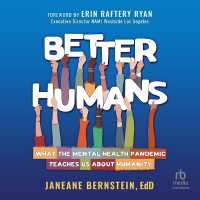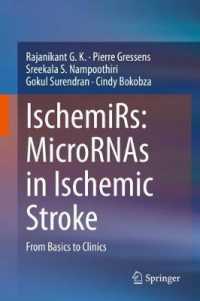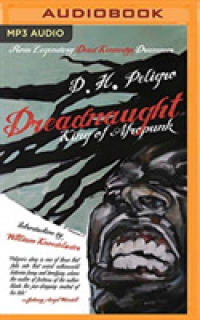- ホーム
- > 洋書
- > 英文書
- > Politics / International Relations
Full Description
This book examines policy responses to Covid-19 in Uruguay and France, in order to shed light on an important new concept in contemporary political science: political knowledge regimes. This concept considers the link between expertise and policymaking, paying particular attention to the demand for scientific knowledge from politicians and policymakers, and why they choose to accept or reject expert advice.
The book begins by assessing the interplay between science, expertise and politics in both countries prior to the pandemic. It then explores if and why the recommendations made by experts during the crisis were translated by politicians into actual policies. Whereas in France policymakers followed the advice of scientists throughout the course of the pandemic, there was much divergence in Uruguay. This was due to several important differences, including political culture and the characteristics of political elites. Together, these created very different political knowledge regimes within the two countries. The book concludes by examining political knowledge regimes in other countries and sets out a future research agenda, making it a vital resource for scholars and students around the world. It will appeal to all those interested in public policy, health policy and comparative politics.
Contents
1: Introduction: Scientific Advice during Covid-19.- 2: Expertise and Democracy: Political Knowledge Regimes.- 3: Covid-19, Expertise and Policymaking France.- 4: Covid-19, Expertise and Policymaking in Uruguay.- 5: Conclusion: A Research Agenda for Political Knowledge Regimes.








